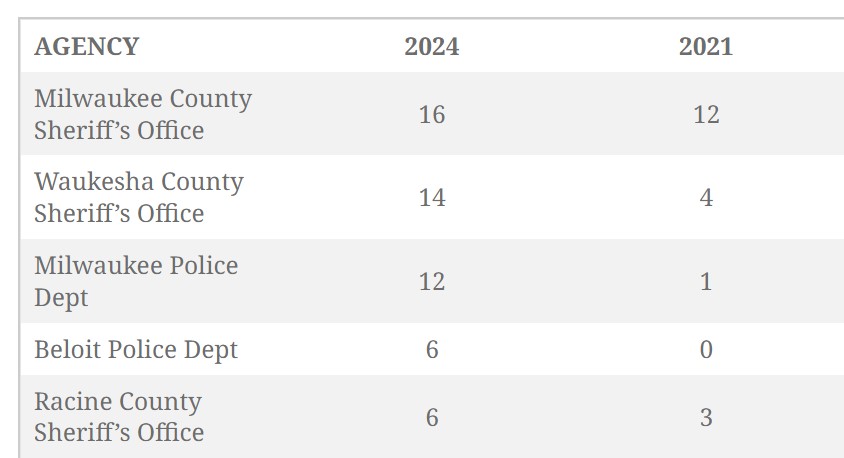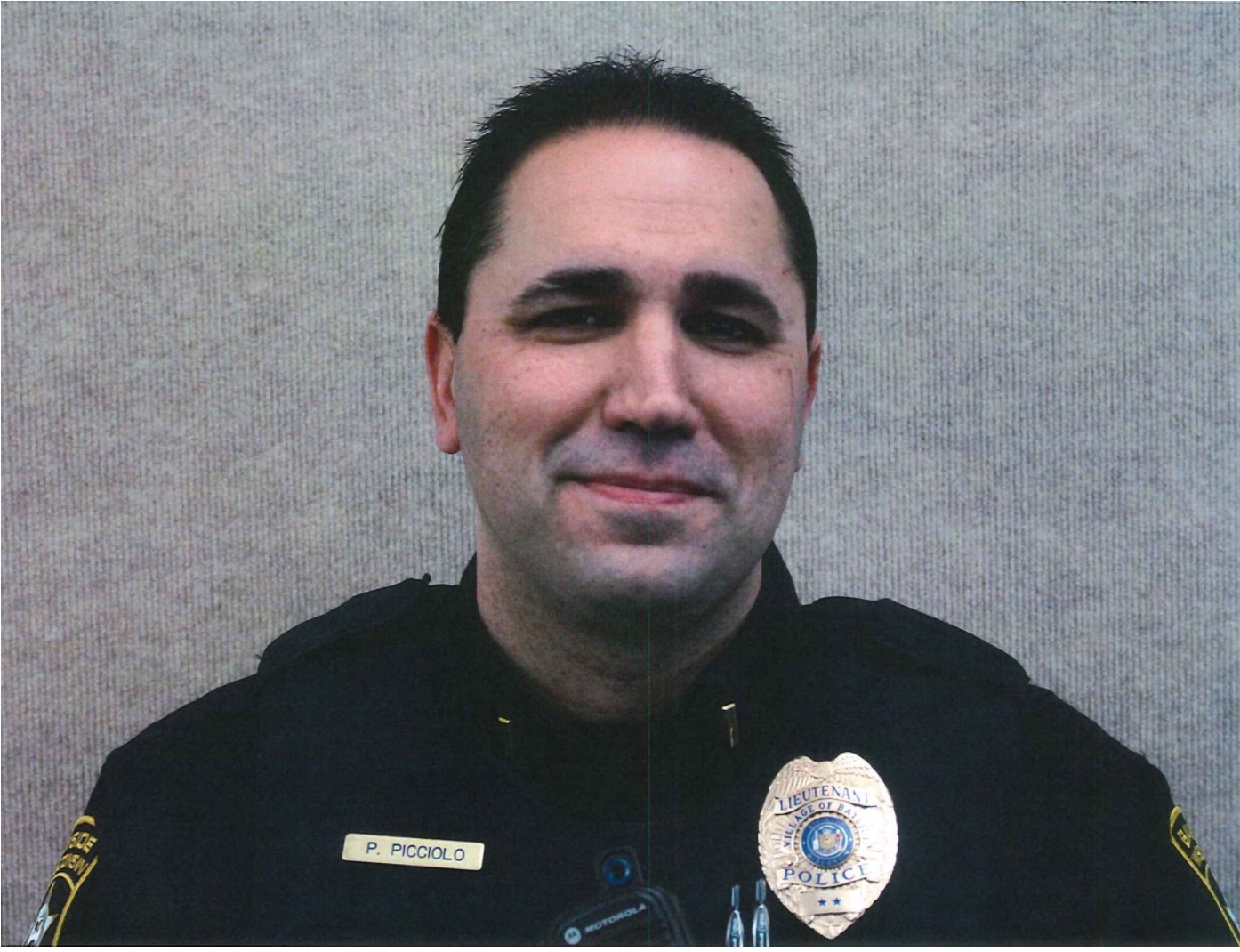
By Howard Hardee, THE BADGER PROJECT
Since Election Day, no evidence of widespread voter fraud has emerged in Wisconsin — or any other state.
But politicians, propagandists and social media influencers have sought to undermine the results of the presidential election in Wisconsin before and after Nov. 3.
With President-elect Joe Biden’s inauguration set for Jan. 20, mistrust of the electoral system has continued festering despite a recount in Dane and Milwaukee counties that detected no signs of malfeasance — and added to Biden’s lead by 87 votes. The former vice president won the state by more than 20,000 votes.
In general, vote fraud in Wisconsin is “exceedingly rare and is managed rather well by the current system,” said Barry Burden, a political science professor and the founding director of the Elections Research Center at the University of Wisconsin-Madison. “When apparent cases do emerge, they are usually detected without much difficulty.”
Vote fraud occurs in every election, but not on a scale that comes close to overturning the results, said Reid Magney, a spokesman for the Wisconsin Election Commission, a bipartisan panel that administers the state’s elections.
“There could be anywhere from 100 to 200 potential cases of election fraud of some kind,” he said. “Most of it involves a felon voting. One hundred votes out of 3.2 million (total votes cast in Wisconsin in 2020) is extremely small.”
The Wisconsin Election Commission has several failsafe measures in place for presidential elections — including fraud audits. Here are 10 reasons that voters can trust the results of the 2020 presidential election in Wisconsin.
1. All voters are required to register
That involves proving residency in Wisconsin with a driver’s license or state ID card, which are matched against Division of Motor Vehicle records, per the state’s strict voter ID law.
“Over the past decade the state has adopted much tougher measures to regulate the voting process,” Burden said. “In particular, the voter identification law adopted in 2011 is one of the strictest in the country. That may be seen as a heavy method of inhibiting vote fraud. But it is not actually well designed to address election-related crimes. Its main purpose is to prevent voter impersonation. That type of fraud is exceptionally rare, easy to detect, and subject to substantial penalties.”
Attempts to vote with a fake ID are exceptionally rare. It would be difficult, though not impossible, to create a fake Wisconsin driver’s license or U.S. passport, Magney said. Not to mention, doing so could result in a criminal conviction.
“The reality is that the cost and effort to do that for one additional vote for the candidate of choice — especially balancing the risks of being caught — it’s just not something that happens,” he said.

2. Photo ID is required to vote by mail
Voters who request an absentee ballot are also required to register by providing a copy of their photo ID.
Wisconsin is a rare state that requires absentee ballots be witnessed and signed by another person. “It is not clear that this requirement is effective in inhibiting absentee ballot fraud, but it is an extra step that must be taken to cast an absentee ballot,” Burden said.
The state recently introduced online tools that let voters and election officials track ballots as they “wind their way through the system,” Burden said. “These tools are quite helpful for providing transparency and as a check on potential crimes such as theft of absentee ballots from mailboxes.”
3. Felons can’t vote until completing their entire sentence… Probation too
Safeguards are in place to prevent the most common form of vote fraud — when a resident who is ineligible to vote due to a felony conviction attempts to cast a ballot. The Wisconsin Department of Corrections provides the commission with a regularly updated list of people convicted of felonies.
“We regularly match that with the voter list, and if there is an apparent match, we will flag that registration for the clerk to review it and make sure it’s the same person,” Magney said. “If it is the same person, then that voter is deactivated immediately.”
If a person who hasn’t completed their full felony sentence tried to register to vote on Election Day, they would most likely get flagged by an election worker. It’s not a foolproof system; sometimes individuals fall through the cracks, Magney said. But those cases are usually discovered during a post-election audit which is mandated by state law.
Apparent cases of vote fraud often aren’t intentional, Burden said.
“People who are on parole or probation from felony convictions are often unaware of election laws and assume that they are able to vote once their incarceration ends,” he said. “Their attempts to vote can sometimes be labeled as purposeful vote fraud, but they are typically misunderstandings of the law.”
4. Dead people can’t vote
The Wisconsin Election Commission receives regular updates from the Wisconsin Vital Records Office of the state with death certificates, and deceased residents are removed from the voter list — despite many claims to the contrary.
5. Potential vote fraud is investigated
Potential cases of vote fraud are directed to county district attorney’s offices for investigation. The Wisconsin Election Commission reports such cases to the Wisconsin State Legislature and posts them online for public viewing.
6. Voting equipment is double-checked
After an election, officials check for discrepancies between the electronic and physical ballots by auditing a random sampling of 5% of the voting machines in the state.
This election cycle, between 180 and 185 units were audited, Magney said. Clerks in those municipalities were required to pull out the ballots and recount them by hand twice to detect any variations or problems.
The Wisconsin Election Commission audited 28 reporting units that used equipment from Dominion Voting Systems, which has been the subject of online disinformation and recently filed a defamation lawsuit against Trump lawyer Sidney Powell.
The audit found no issues with the Dominion machines, Magney said. Any variation between what the machines reported and the number of physical ballots would have been flagged and investigated.
“The idea that someone could have hacked those machines or manipulated those machines, and it wouldn’t be caught by this audit, is just not credible,” he said. “They got out the ballots and hand counted them in public — twice.”
7. Residents can’t vote more than once
Wisconsin is part of a 30-state group known as the Electronic Registration Information Center that provides reports on potential duplicate registration records in different states and flags registrants who might have died or moved.
“If you voted in one place and went and voted somewhere else, and registered to vote on election day, and used your real name and identification, that would be caught as well,” Magney said.
The system also detects when somebody tries to vote in more than one state.
“The system has become a source of controversy because it is not perfectly reliable in every case, but it is nonetheless a tool that allows the state to look into records that may need to be updated or purged,” Burden said. “Simply notifying voters that their records have been flagged can be a helpful alert in case another person was attempting voter registration fraud.”
8. Residents can report suspected vote fraud
If a resident suspects they’ve witnessed a form of vote fraud, they can file a sworn complaint with the Wisconsin Election Commission. The public’s eyes serve as another layer of protection for the integrity of the election.
“We receive very few sworn complaints,” Magney said.
9. Thousands of election officers are on alert
Elections officers in Wisconsin take election crimes seriously, Magney said. A suspicious influx of online voter registrations or mailed-in voter registration forms likely wouldn’t go unnoticed.

“Wisconsin has the most decentralized elections administration system in the country, with 1,850 municipal clerks,” he said. “Having all of those eyes on the voter list, having all of that local ownership, is an important part of our election security system in that they know their voters.”
10. Claims of vote fraud at an election-shifting scale don’t make sense
A useful thought exercise for seeing through conspiracy theories is imagining how many people would have to keep it a secret. Rigging a Wisconsin election decided by tens of thousands of votes would require a massive level of coordination between thousands of election officers who have sworn to uphold the state constitution, Magney said.
“We make sure that elections officials are on the same page to follow the law and properly administer the election,” Magney said. “The idea that everybody would be conspiring to change the election results or to somehow subvert the system is absurd.”
The Badger Project is a nonpartisan, citizen-supported journalism nonprofit in Wisconsin.
Categories: News Blog






2 replies »